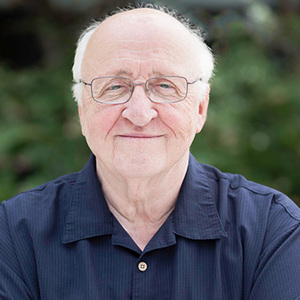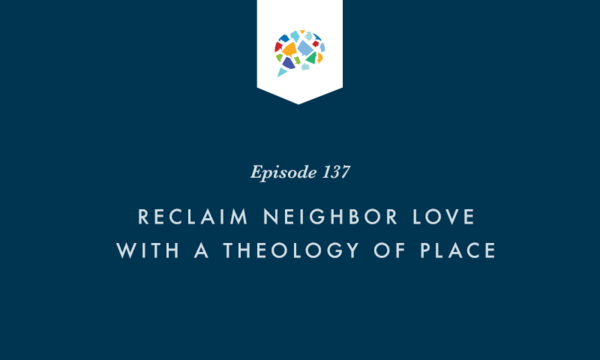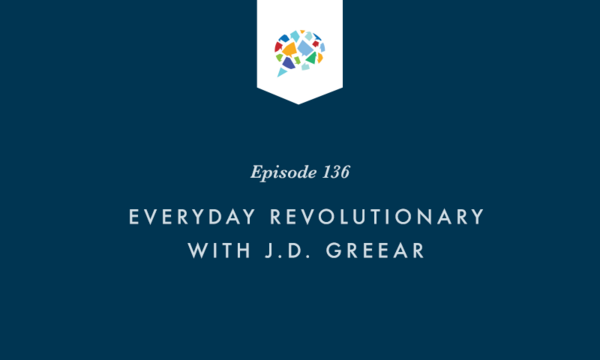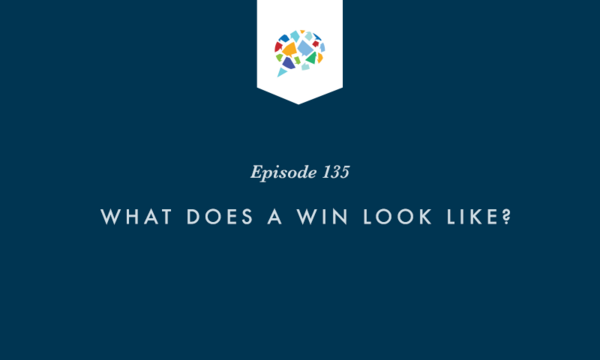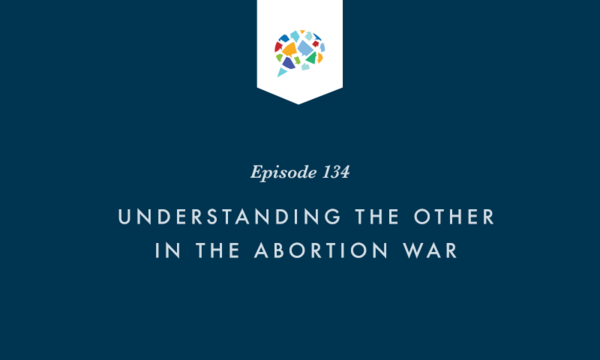
Can we think about civility from a distinctly Christian perspective? American theologian philosopher Richard Mouw joins the podcast to explore this question with Tim and Rick. Dr. Mouw has been thinking about civility and helping religious and political parties engage in civil discourse for over 40 years, and he sits down to share stories and insights gained. The conversation ranges over the biblical mandate to be civil, the difference between gentleness and civility, and how to keep things civil during disagreement. This is part 1 of a 2-part conversation with Dr. Richard Mouw on civility.
Transcript
Rick Langer: I would like to welcome you to the Winsome Conviction Podcast. My name's Rick Langer and I'm one of your co-hosts here. I'm a professor of biblical studies and theology here at Biola University, also the Director of the Office of Faith and Learning. And one of my favorite things is also working with the Winsome Conviction Project and my good friend and colleague, Tim Muehlhoff.
Tim Muehlhoff: Rick, it's great to be here with you. One of the fun things about this podcast is we get to bring on people that we deeply admire, whose work honestly laid the foundation for not only our own writings, but for the Winsome Conviction Project. And we get to have one of those guests today. His name is Richard Mouw. He's an American theologian philosopher. He held the position of president at Fuller Theological Seminary for 20 years, and his book, Uncommon Decency is really was one of the foundational books that led us thinking about this entire project.
I had the privilege when Dr. Mouw came to Biola University with our Center for Christian Thought, to do a panel conversation with him on civility, kindness, perspective, taking along with one of our professors, Tom Crisp, with our chaplain, Todd Picket and Dr. Mouw, that conversation that we had many years ago really got the ball going for us, thinking about something like the Winsome Conviction Project. So Rick and I just want to start this by simply saying thank you for your lifetime of service, for thanking for wading into really difficult areas and showing us how to do that from a distinctly Christian perspective. Welcome.
Richard Mouw: Well, thank you so much and thank you guys. I mean, really, I'm very excited to follow up on a lot of things. Whatever you learned from me, you've taken it further and I've learned from you.
Tim Muehlhoff: Well, we really appreciate that. Before we jump into your book on Uncommon Decency, tell us a little bit about what prompted you to take on the topic of civility.
Richard Mouw: Well, it was back in the 1980s, I had been involved in a number of discussions of international relations and the kinds of political concerns that we all have together, and it just struck me that religion was a big part of the problem internationally. So I was thinking about Northern Ireland and I'd been there, gave some lectures there about Protestants and Catholics and dialogue here and the Middle East, the Muslims and Jews killing each other. And also Bosnia Herzegovina, where there were Christian versus Muslim. And I began to think how could Christianity as a religious movement in the world, be a part of the solution rather than a part of the problem?
And at the same time, I do a lot of philosophical work and political theory and the like. And I've been reading some Aristotle and some other things about citizenship and the idea of civility came up. And then you guys know this story. There was a little book by Martin Marty that I was reading, and he had this wonderful line, Martin Marty, the great Lutheran commentator, theologian, historian. He says, "A lot of people who are civil these days don't have very strong convictions, and a lot of people who have strong convictions aren't very civil. And what we need is convicted civility."
Rick Langer: Yes. And I appreciate that quote from Martin Marty about this tension. It seems to be in the background about if you actually have a conviction, somehow we imagine that as pushing back against the notion of civility. One of the things that we've talked about a lot is actually making civility a matter of conviction. To say we don't really have the option to opt out.
Richard Mouw: No, that's right. And you see, that's the thing that I came up with after a while, that it isn't that we've got all these biblical convictions and then we're trying to sort of superimpose civility on them. But the biblical convictions include a mandate through civility. Where does the mandate through civility come from in the Scriptures? And it really is there and we need to take it very seriously.
Rick Langer: Just exactly on that theme. One of the things that has come up in some of the discussions we've had is the fact that civility as a term isn't there in the Bible. So what is one of the words that we have talked some about is gentleness, which is amazing once you start looking at the number of times and ways, it's not recommended. It's literally commanded of us. It's a mark of the fruit of the spirit sowing these areas. And let me just ask you, would you consider gentleness and civility, are they basically synonyms? Do they kind of complement each other? Are they two different concepts? Could you think with us just a little bit about that and how those are connected?
Richard Mouw: Well, I think the gentleness, and you're right, so we don't have to go looking all that up, although my favorite one is in Peter 3:15. "Give a reason for the hope within you, but do so with gentleness." See, I think gentleness is the general term. Then we have to think what is parental gentleness? What is marital gentleness? What is classroom gentleness? What does gentleness mean when you're in line at Whole Foods? All of this kind of stuff. So that civility is public gentleness in our roles as citizen, because that word civility comes from the word for city, for public life. So it is specifically, I want to say public gentleness.
Rick Langer: That's a very helpful distinction.
Tim Muehlhoff: And let me just remind my listeners that Dr. Langer wrote a wonderful piece for the Christ Animated Learning Blog sponsored by the Christian Scholars Review on gentleness. And I just encourage you to go look that up. Also, check out his one on everything I learned from Tim Muehlhoff, a much shorter piece, but still absolutely brilliant.
Dr. Mouw, let me ask this. Some people have said that today it's much, much more difficult to be civil. In other words, times have just simply changed. It's no longer feasible to pursue peace in today's argument culture. But you're not so sure that that assertion is true.
Let me read something from your book that really stood out to me. You write, "When the biblical writer first urged the followers of Christ to pursue peace with everyone, the society was at least as multicultural and pluralistic as ours. The early Christians were surrounded by a variety of religious and moral systems. Their pagan neighbors worshiped many gods. And that worship was sometimes so depraved that it would even be shocking in today's permissive culture." So you're not so quick to say, times are so bad today that Christians have never experienced it.
Richard Mouw: I want to go back further into the Old Testament where God's people, who had had their own temple, they had some godly rulers, certainly godly laws, and then suddenly they're uprooted and taken into the wicked city of Babylon and wondering, how in the world do we sing the Lord's song in this strange land? And Babylon was a very wicked pagan city. And then Jeremiah comes to them and says, here's the deal. Build houses and live in them, plant gardens, you got to settle in here, marry off your sons and daughters and multiply in the land and then this. "But seek the welfare, the shalom of the city in which I placed you in exile. Pray to the Lord on its behalf for in its shalom, you will find your shalom." Now, and I think shalom is not identical with civility, but I think shalom means caring about other human beings and doing what we can to help them to flourish.
Shalom is human flourish. And I think civility is certainly a way of that. I mean, Aristotle, who was so good at this, we first learned to bond with other people, with Mommy and Daddy when we're very young. And then we learned to bond with friends beyond the kinship system. But he said, "We don't really grow up. We don't really mature until we learn to bond with people in the public square." And those people are different from us. They may be a different race, a different religion, a different tribe, a different lifestyle. But we have to recognize our shared humanity with them.
And biblically, it's recognizing that every human being that I come across is created in the image of the God and Father of Jesus Christ. And that sense in which out there amidst the worst people on the world, we're still on sacred ground and we need to learn how to handle that. And the Bible doesn't say, be civil or be gentle only with people you like. And I mean, that's easy.
Rick Langer: Let me just pick up on that real quickly, you're giving a piece of what I, kind of great theological advice in terms of seeing the person you're talking to, who is a person you may disagree with, as nonetheless being a person made in the image of God and things like that. One of the things I admire about you over the course of the decades is your ability to successfully actually do that. Like so many other things, hey, that sounds great in theory, when it comes to practice, it seems like it breaks down. So I'm just wondering if you could just give us a few, tell us maybe a little bit of your story about how you developed that, or perhaps a few insights you have about actually putting that kind of perspective into action in the face of conflicting convictions or whatever else might cause you ill feelings towards another person.
Richard Mouw: I was on National Public Radio one time with a gay activist who actually at a university taught queer theory. And we were talking about our differences and we got kind of sharp of each other for a little while. And then it occurred to me, this guy is in a certain way, he's afraid of me and in a certain way I'm afraid of him. And so I said, "Hey, let me just say something. Your people are listening and cheering you on. And my people may be listening and cheering me on, but wouldn't it be wonderful we could just turn off the mics, get in a room, close the door, and I could ask you, what is it about people like me that bother you so much? And you could ask me, what is it about what I and my partner want out of life that I find you so threatened too? And is there any way that we can get along out there?"
And what I was getting out there, and I've quoted a lot more recently, but all of a sudden it hit me afterward. I was reflecting on that wonderful line in the Christmas Carol, "The hopes and fears of all the years are met in me tonight." And I began to adopt what I call the kind of methodology of hopes and fears.
There are people that I love who voted very differently than I did in the last presidential, last couple presidential elections. And I could easily get angry with them and say, "Why did you vote that way?" But I don't define them in terms of how they voted. These are grandparents who care about raising their kids in contemporary culture. They worry about the economic stability of the society in which they live. And I find it much more interesting to focus on hopes and fears.
And then there's a little line that I learned from Young Life people. They say, "If you want to know what a 15 year old girl believes about God, don't ask her, what do you believe about God? But ask her, what do your friends believe about God?" Because if you say, what do you believe about God? All of a sudden she's, oh, I hope I say this the right way. I hope I don't make myself sound stupid. But if she's reporting about her friends, her peers, she relaxes. She's become kind of an amateur social psychologist. And you're going to learn what she believes about God now from what she says. And there's something about that, and this has to do with just how we talk.
I have found it, actually there's a Jewish friend of mine, we were doing a bunch of things on leadership, and we ran into some fundamentalist type, congregational people. And she's not a secular Jew. And she paid me a compliment afterwards. She said, "Watching you interact with people you disagree with, I find that you seldom will say, 'Well, why do you believe that?' But instead you say, 'Help me to understand what you're saying now. Is this the way you would put it?'" And I think she was a bit little too charitable to me, but she actually made me aware of what I really think is the right way to engage with people we disagree with.
And your listeners could check this out, there's a wonderful short document called The Dialogue Decalogue: 10 Commandments for being in Dialogue with People You Disagree With. You could find at least 15 times on the web. And it was forged out of interfaith dialogue. And most of the commandments, the 10 Commandments, I agree with. I've put on a different spin on some of them as an evangelical Christian.
But here are the two things, enter into, if you're going to talk to somebody you really disagree with, don't go in trying to win an argument, but trying to go in and try to understand that person and trying to make sure that when you come away from that, you can articulate what they believe in ways that they would put it themselves. And that's a learning experience. And then another question, and then another thing is to enter into it as a learning experience. That's the big thing. And then the thing is, why do we want to learn? Well, as Christians, I think if we're really going to present the good news to people, we got to present it to real people. And that means that we need to listen to them.
Tim Muehlhoff: Boy, that was great. I was writing that down as you were speaking. Going back to that illustration when you were on that program with the person who was supporting gay rights. And you said, "Why don't we just turn off the microphones and talk to each other?" What really struck me about that is how really hard that is to do practically. I'm doing a debate coming up with a YouTube atheist, it's going to be done live. And I would love to be able to say to them, "Hey, let's just turn off the microphones. Let's just have a conversation, you and me, about God, faith." But it occurs to me that I'm always thinking about what my community thinks about what I'm doing or saying and that often really keeps me in check from doing anything that I think might move the needle. And so how do we do that balance of when I'm talking to this atheist, I'm also talking to the Christian community who's checking me out to see if I'm toeing the line? And that usually keeps me from doing anything risky to move the needle.
Richard Mouw: Yeah. Well, that's one of the big problems of our culture today. Many of the dialogues that we have, people are going to try to declare a winner at the end, on radio, television or on the internet. And then the other thing is, many of the dialogues, there's going to be a vote. I mean, it's one of the big problems in Christian denominations where we debate sexuality. We're going to vote.
Rick Langer: At the end of the day, a decision has to be made.
Richard Mouw: Right. Or we have cheerleading groups who are cheering us on. And we need to simply try to find places, and this is going to take the work. For 20 years I've been involved in a, and you guys know about this, a dialogue with a group of Mormon people. I mean, right now it's about six Mormons and six evangelicals. And this began when a good friend of mine, Robert Millet, who was a dean at Brigham Young, and we've been together for 20 years. We were trying to figure out if we could have a dialogue where the co-sponsoring institutions would be Fuller Seminary, Brigham Young University. And of course there are risks on both sides there.
So I brought Robert Millet to our board of trustees, and we had an off the record session and asked them to really listen to why we wanted to have this dialogue. And Bob Millet said to them, "We Mormons, we haven't had a serious discussion with traditional Christians for 150 years. And when we say what our theology is like, we're not even sure we're using the right categories. We talk about the three persons of the Godhead, but we say we don't believe in the Trinity. Well, how do we clarify that?" He said, "What we need is a safe place where we can close the door and where we can say to evangelicals, 'Let me try it to put it this way and tell me how this comes across to you.'"
Tim Muehlhoff: But that made me think immediately of Antony Flew when the great British atheist in his conversation with Gary Habermas, who is one of our best defenders of the resurrection. And they had this conversation via letters, which is so different than trying to do that on Facebook. You know what I mean? Public documents. But I love the fact that they kept it quiet until it was actually Antony Flew who went public with the fact that he was now embracing maybe the God of Aristotle. But you're right. So we need to have the public events. But I love that idea of let's take a risk and create some safe places where we can literally turn off the microphones or social media.
Richard Mouw: Yeah, no, that's right. And that's good. And I can't tell you how much I appreciated that Anthony Flew thing because as a doctoral student in philosophy, I got to meet Anthony Flew. I wouldn't have thought of him as a gentle dialogue person. But I really felt that he had come to a place in his life as a minister's son who had rebelled. His father was a Methodist minister, where he'd come to a place in his life where he was really searching and Habermas and others said, "Hey, let's talk. And let's try to talk in ways that meet the needs of both of our searches." And that's a good thing. Anyway, that's wonderful.
Rick Langer: Well, let me bring a close to this particular episode, and we're going to ask Dr. Mouw to hang in there with us for a second episode. But we want to thank all of our listeners for the Winston Conviction Podcast and we encourage you to subscribe. You can find us at Apple Podcast or Google Play or wherever you'd like to, Spotify, wherever you'd like to get your podcasts. And also check us out at thewinsomeconviction.com website. You'll find resources and articles and things like that that are available there. And we're so grateful for all of our listeners, grateful, especially for special guests like Dr. Mouw. And we encourage you to join us for part two because we'll be continuing this conversation.
 Biola University
Biola University

